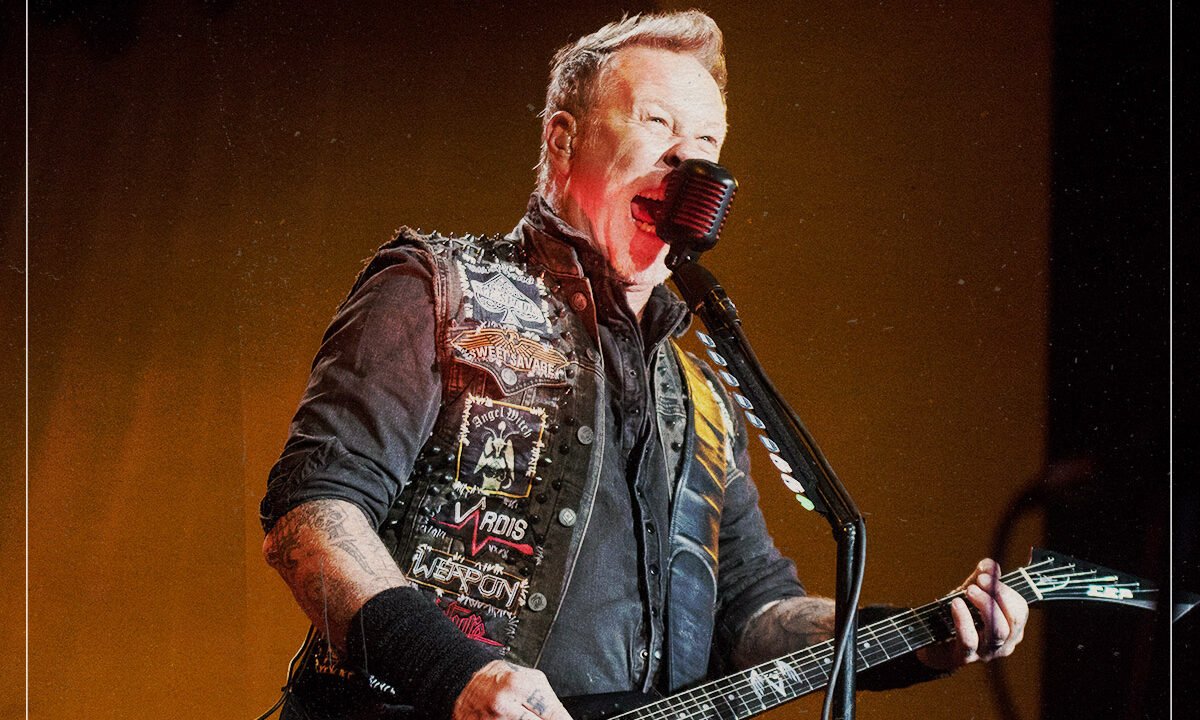

(Credits: Far Out / Carlos Rodríguez / Andes)
Being a songwriter doesn’t simply mean putting a couple of words together with a melody. Many artists only see their lyrics as secondary to what they do, but when looking a little bit under the surface, even the lines that don’t make any sense to the average listener could mean the world to the person who wrote them. And for all of the battle cries that James Hetfield has written for Metallica over the years, he could still appreciate when someone took a bit of a different approach to their craft.
But, really, Hetfield turned himself into the best lyricist in metal by accident. In most of his interviews, he said that he liked the idea of being a rhythm guitarist who wrote riffs, and even up until releasing Master of Puppets, the band had been looking for a singer who could do justice to their songs until Hetfield figured that he might as well sing whatever he wanted over the tunes.
Once he started working on The Black Album, he started to open his mind up to different vocal styles than his trademark bite. That had its place as another percussion instrument in the mix, but by getting into vocal inflexions on tunes like ‘Nothing Else Matters’, he was able to get more candid about the sensitive topics going on inside his head. It wasn’t Bob Dylan by any means, but it was still more personal than usual.
Take a song like ‘The God That Failed’, for instance. Hetfield wrote many tunes about the darkness of humanity, but since this was addressed to his mother, who had died after refusing medical treatment due to her Christian Science beliefs, there was a lot more of a personal angle to everything. Then again, anyone who thinks they wrote a dark song should kneel at the feet of Tom Waits.
Waits already had some fine tunes under his belt when playing the role of a singer-songwriter in the 1970s, but when he hit albums like Rain Dogs, he finally had the vehicle for him to deliver everything properly. He wanted his tunes to hit the listener like a smack in the mouth, and across records like Bone Machine and Mule Variations, he seems more interested in putting someone in the uncomfortable environment of the song rather than worrying about whether everything is perfectly in tune.
It’s not exactly on the same technical level as a tune like ‘One’, but Hetfield always had a deep respect for what Waits was doing, saying, “As far as Tom Waits, just being a master craftsman at lyrics and painting a picture in one sentence interests me, and it takes work. I saw Tom kind of live it. It was his vocabulary as well. He could sit and speak like that. I can’t.”
Don’t let that dissuade you from thinking that Hetfield is an inferior lyricist by any stretch. He has his moments where he can paint a picture over the course of a song like ‘The House That Jack Built’, but looking at the production value on many of Waits’s best albums, he’s a better sonic actor than Hetfield will ever be, even going so far as to develop a specific accent depending on what the character needs.
But Waits’s approach speaks more to where he’s coming from as an artist rather than Metallica’s tunes. Ever since the 1990s, Hetfield wanted to make sure that his story songs were from the heart, but the minute that Waits opens his mouth, no one knows where the tune’s going until the final few seconds.
Related Topics











